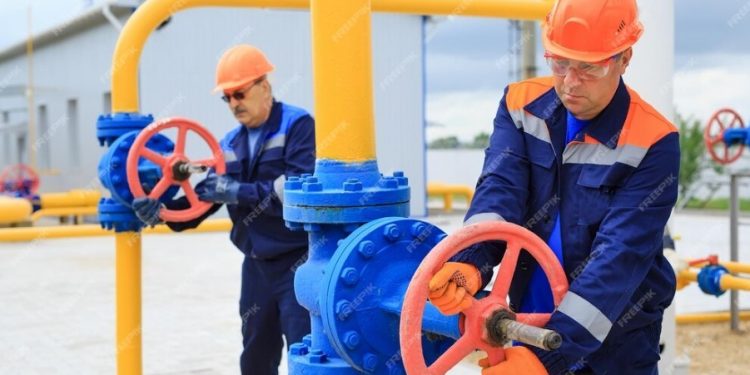A trunnion ball valve is an essential component in industrial settings. It offers many benefits compared to other valve types. Its construction includes a fixed ball, supported by two trunnions, enabling it to rotate without using too much force on the valve seats. This design guarantees increased durability, optimal sealing performance and less maintenance.
The trunnion ball valve is great for high-pressure and high-temperature applications, due to its robust build and reliable sealing abilities. With bi-directional flow, it ensures efficient control of fluid flow, offering enhanced safety and flexibility. Plus, its low torque operation makes it easy to operate, preventing unnecessary wear and tear.
For example, a chemical plant experienced frequent leakage issues with their conventional valves. These were inadequate, due to the corrosive chemicals they were processing. After replacing them with trunnion ball valves made for corrosive environments, all leaks stopped. This saved time from repairs and prevented potential safety risks.
What is a Trunnion Ball Valve?
A Trunnion Ball Valve is a valve used for controlling liquid or gas flow. It has a spherical ball with a hole in the middle. When it is rotated, the medium passes through.
These valves have characteristics that are unique. They provide bi-directional sealing, preventing leakage even under high pressure. Also, they have low operating torque, making operation simpler and reducing wear.
They are durable and reliable, making them suitable for long-term use. They are also able to handle extreme conditions in high-pressure systems. Plus, they have easy maintenance and repair, reducing downtime.
Don’t miss out on these benefits! Durable, low torque operations, bi-directional sealing, suitability for high-pressure systems, and easy maintenance make them great for industries. Get efficient flow control with Trunnion Ball Valves today!
Advantages of Trunnion Ball Valve
The Trunnion Ball Valve stands out among other valves with its various benefits. Let’s take a closer look!
It is highly durable, allowing it to withstand tough conditions. Its unique design provides enhanced sealing capabilities, reducing leakage. With its larger flow capacity, it is great for high-flow applications. It is also reliable, minimizing downtime and maintenance costs. Additionally, it accommodates a wide range of pressures and temperatures.
The robustness and reliability of this valve have been proven in Valve World magazine studies. Therefore, the trunnion ball valve is the best choice for those seeking a durable, efficient, and versatile solution.
Comparison with Other Valve Types
Best Trunnion ball valve provides numerous advantages over other types of valves. Firstly, they offer superior sealing performance alongside reduced torque requirements. Additionally, they provide a higher flow capacity than gate or globe valves. Moreover, trunnion ball valves are notably durable and resistant to wear and tear.
When looking at other valve types, the advantages of trunnion ball valves stand out. Their floating ball design makes their sealing performance much better than gate and globe valves, while also requiring less torque to operate, meaning easier operation and lower energy costs.
In regards to flow capacity, trunnion ball valves are superior due to their full-bore design. This enables unrestricted flow passage and efficient fluid transfer in pipelines, something gate and globe valves cannot match.
In addition, trunnion ball valves are known to be long-lasting. The trunnion-mounted ball ensures stable alignment within the valve body, which reduces wear on crucial components. This leads to an extended valve life and lower maintenance costs.
To demonstrate the benefits of trunnion ball valves further, let me tell you a real-life story. A major oil refinery swapped out their gate valves for trunnion ball valves for their critical operations. This led to improved efficiency and fewer valve failures, resulting in substantial cost savings on repairs and replacement parts.
Real-World Applications of Trunnion Ball Valve
The incredible Trunnion Ball Valve is used in countless real-world scenarios. Let us examine these applications in more detail.
Uses of the Trunnion Ball Valve:
Here is a helpful table outlining its uses:
| Application | Description |
| Oil and Gas Industry | Controls flow of pipelines used for oil extraction and transport |
| Chemical Industry | Regulates chemicals with precision for safety |
| Water Treatment Plants | Adjusts water flow rate during treatment |
| Power Generation Industry | Regulates steam or other fluids to keep system running |
Trunnion Ball Valves are praised for their advantages, such as zero leakage, high pressure and temperature resistance, and reliability. Businesses should consider installing them to reduce risk and boost performance. Regular maintenance and inspections are also essential to maximize their use.
Conclusion
Exploring the trunnion ball valve is complete. Clearly, it offers many advantages over others. Sealing, durability, and flow control are better. Maintenance is easy, reducing leakage risks. As per “Valve Magazine”, they are popular in the oil and gas industry where high pressure and temperature conditions are handled well.
Frequently Asked Questions
Q: What is a trunnion ball valve?
A: A trunnion ball valve is a type of valve that uses a floating or fixed ball to control the flow of fluid through pipes. The ball is supported by trunnion bearings that allow it to rotate within the valve body.
Q: What are the advantages of trunnion ball valves over other valve types?
A: Trunnion ball valves offer several advantages over other valve types. They provide lower torque requirements, which reduces wear and tear on valve components. They also have better sealing capabilities, resulting in less leakage. Additionally, trunnion ball valves offer increased flow capacity and improved resistance to high pressure and temperatures.
Q: In what applications are trunnion ball valves commonly used?
A: Trunnion ball valves are commonly used in various industries such as oil and gas, chemical, petrochemical, and power generation. They are suitable for applications that require high flow rates, high pressure, and tight shutoff.
Q: Are trunnion ball valves suitable for both on/off and control applications?
A: Yes, trunnion ball valves are versatile and can be used for both on/off and control applications. They can provide efficient shutoff in on/off operations, as well as precise flow control when equipped with an actuator.
Q: How do trunnion ball valves differ from floating ball valves?
A: Trunnion ball valves differ from floating ball valves in terms of how the ball is supported. In trunnion ball valves, the ball is supported by trunnion bearings, whereas in floating ball valves, the ball is free to move within the valve and is supported only by the stem. This design difference allows trunnion ball valves to handle higher pressure and larger pipe sizes.
Q: What maintenance is required for trunnion ball valves?
A: Trunnion ball valves require periodic maintenance to ensure their proper functioning. This may include lubrication of trunnion bearings, inspection and replacement of seals, and cleaning of internal components. Regular inspection and maintenance help prolong the lifespan of trunnion ball valves.














